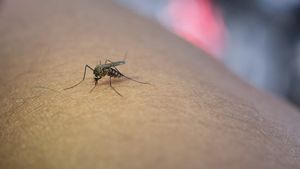JAKARTA - The World Health Organization (WHO) says crowds at Euro 2020 football stadiums as well as in pubs and bars have fueled an increase in COVID-19 infections in Europe. The 10-week decline in coronavirus cases in the region has ended and a wave of infections has ended. "We need to look at more than just the stadium itself," WHO senior emergency officer Catherine Smallwood told reporters, quoted by Antara, Thursday, July 1. Last week, the number of cases only up 10 percent, fueled by crowd mixing in Euro 2020 host cities, travel and the easing of social restrictions, the WHO said. “We need to see how people get there, are they traveling in big convoys of overcrowded buses? And when they leave the stadium, do they go to the lively bars and pubs to watch the game? It's these small, constant events that drive the spread of the virus," said Smallwood.
German Interior Minister Horst Seehofer said European football's governing body UEFA's decision to allow large crowds at Euro 2020 was "absolutely irresponsible". UEFA said in a statement to Reuters that mitigation measures in the host cities were "fully aligned." with regulations established by the competent local public health authority". The increase in new COVID-19 cases is due to the more contagious variant of the Delta virus spreading rapidly throughout Europe. Nearly 2,000 people living in Scotland had attended the Euro 2020 event while being infected with COVID- 19, with many attending the group stage match against England in London on June 18, Scottish authorities said Wednesday. The rise in infections has raised fears that a third wave could spread across Europe in the fall if people are not vaccinated. "Fears of a fall spike still exist, but what do we see now is that it might come early," Smallwood said.
The English, Chinese, Japanese, Arabic, and French versions are automatically generated by the AI. So there may still be inaccuracies in translating, please always see Indonesian as our main language. (system supported by DigitalSiber.id)













